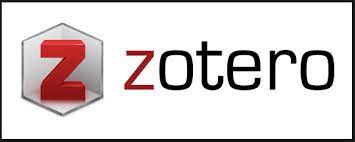STRATEGY FOR USING SOCIAL MEDIA AS A LEARNING TOOL TO DEVELOP DIGITAL LITERACY AMONG TEENAGERS
Keywords:
Strategies for Using Social Media, Learning Tools, Digital Literacy, TeenagersAbstract
This research aims to examine strategies for using social media as a learning tool in an effort to develop digital literacy among teenagers. The research method used is literature research by collecting and analyzing various relevant sources, including journals, articles and books that discuss this topic. The main findings of this research indicate that social media has great potential to be an effective learning platform for teenagers, given the high level of engagement and popularity among them. Effective strategies found include collaboration with educational technology and child psychology experts to ensure safe, engaging, and educational content. In addition, developing a healthy digital culture through education about digital ethics and online privacy is very important to maximize the use of social media. Support from governments and educational institutions, such as providing funding, teacher training, and partnerships with technology companies, was also identified as a key factor that can improve technology infrastructure and access to learning resources. With proper implementation, social media can be an effective tool for developing digital literacy among teenagers, preparing them to face the challenges of the digital era.
Downloads
References
Adigwe, I., Mason, J., & Gromik, N. (2024). Investigating the relationship between socio-demographic variables of parents, digital literacy and parental mediation practices in the digital age: Nigeria in focus. E- Learning and Digital Media, Query date: 2024-12-23 14:50:14. https://doi.org/10.1177/20427530241232495
Amalia, A. N., & Supriyadi, S. (2024). The Influence of Social Media and Digital
Literacy on Students’ Learning Achievement in Economics Subjects.
International Journal of Business, Law, and Education, 4(2), 1560–1566. https://doi.org/10.56442/ijble.v4i2.620
Annisa, D. T., Soma, A. M., & Sitorus, P. M. (2024). The Influence of Financial Literacy, Digital Literacy, and Social Capital on Digital Bank Financial Inclusion through Ease of Use an Intervening Variable. International Journal of Social Science and Human Research, 7(11). https://doi.org/10.47191/ijsshr/v7-i11-11
Awaliyah, N. N. (2024). The Influence of Social Media, Economic Literacy and Digital Literacy on Entrepreneurial Intentions of Class Xi Students (Case Study At Sma N 12 Jakarta). International Student Conference on Business, Education, Economics, Accounting, and Management (ISC- BEAM), 2(1), 942–956. https://doi.org/10.21009/isc-beam.012.59
Berwick, C. (2024). Social media performance in school: Youth practice of humor and resistance through TikTok trends. E-Learning and Digital Media, Query date: 2024-12-23 14:45:45. https://doi.org/10.1177/20427530241241766
Buchan, M. C., Bhawra, J., & Katapally, T. (2023). Improving digital literacy in a digital world: Development of an evidence-based digital literacy program and assessment tool to evaluate youth digital literacy. Query date: 2024- 12-23 14:50:14. https://doi.org/10.31219/osf.io/aqvcu
Castellano, S. (2022). Social media literacy in contemporary society and the digital media ecosystem. Sociétés, 2, 55–71. https://doi.org/10.3917/soc.156.0055
Chiewphasa, B. B., & Sisk, M. (2022). Leveraging Critical Information Literacy to Develop Social Justice-Minded Data Literacy Competencies. Journal of Critical Digital Librarianship, 2(1). https://doi.org/10.31390/jcdl.2.1.04
Earley, M. A. (2014). A synthesis of the literature on research methods education. Teaching in Higher Education, 19(3), 242-253.
Fathurohman, F., Marzuki, M., & Baharta, R. (2023). THE INFLUENCE OF SOCIAL MEDIA USE ON THE SELF-PERCEPTION AND SOCIAL RELATIONS OF TEENAGERS IN THE DIGITAL ERA. Jurnal Kajian
Pendidikan Dan Psikologi, 1(2), 111–119. https://doi.org/10.61397/jkpp.v1i2.89
Fraser, C., & Crombie, P. (2022). Social media as an academic research tool: Efficacies and concerns. Scope: Contemporary Research Topics (Learning & Teaching), Query date: 2024-12-23 14:31:00, 75–83. https://doi.org/10.34074/scop.4011010
Fuadah, A. M. (2022). THE INFLUENCE OF SOCIAL MEDIA ON READING INTEREST AL-QURAN IN THE MONTH OF RAMADAN AMONG TEENAGERS. Query date:
2024-12-23 14:39:39. https://doi.org/10.31219/osf.io/9bd83
Garrand, T. (2023). Using Interactive Narrative to Present Information. Writing for Interactive Media, Query date: 2024-12-23 14:31:00, 252–275. https://doi.org/10.4324/9781003430612-24
Kennis, A. (2022). The News Media Landscape of the Age of Social Media and Related Lessons in Media Literacy. Digital-Age Resistance, Query date: 2024-12-23 14:39:39, 17–51. https://doi.org/10.4324/9781003003854-2
Kingchang, T., & Chatwattana, P. (2023). The Activity-based Learning Model using Virtual Interactive Micro-learning on Cloud Community to Enhance Digital Literacy Skills. Journal of Technical and Engineering Education, 14(1). https://doi.org/10.14416/j.ftee.2023.04.02
Kurniawan, F., Gunawan, R., & Qodariah, L. (2022). The Relationship of Infographic Learning Media and Instagram Media to Students’ Digital Literacy Ability in Social Studies Learning at SMP Shidqia Islamic School Bekasi. Edumaspul: Jurnal Pendidikan, 6(2), 2129–2135. https://doi.org/10.33487/edumaspul.v6i2.4555
Maghfiroh, A., & Wachidah, K. (2023). The Effect of Using Digital-Based Comic Learning Media on Reading Literacy for Grade 4 Elementary School Students. Indonesian Journal of Innovation Studies, 21(Query date: 2024- 12-23 14:45:45). https://doi.org/10.21070/ijins.v21i.751
Mathe, M., Verhagen, H., & Wiklund, M. (2022). Investigating Social Media Potential for Supporting Teachers’ Digital Games Literacy. European Conference on Games Based Learning, 16(1), 329–338. https://doi.org/10.34190/ecgbl.16.1.712
Purwati, S. & Sukiman. (2024). The Influence of Teachers’ Digital Literacy and Media Literacy on The Quality of Learning at Raudhatul Athfal. Journal of Scientific Research, Education, and Technology (JSRET), 3(2), 600–612. https://doi.org/10.58526/jsret.v3i2.389
Santos, M. R., & Gomes, M. M. F. (2023). Lifelong Digital Learning: “Computer Literacy,” “Digital Literacy,” And “Digital Competence” As Dimensions For Digital Skills. Revista de Gestão Social e Ambiental, 18(1). https://doi.org/10.24857/rgsa.v18n1-028
Sarlin, S., Iskandar, I., & Herlina, H. (2024). Influence Digital Literacy on Students’ Reading Interest with Consider Concentration Study Students in Social Sciences Lessons. Journal of Education Method and Learning Strategy, 2(2), 859–865. https://doi.org/10.59653/jemls.v2i02.819
Sekhon, J. (2023). Using social media in IP teaching: A review of the use of social media as a learning and teaching tool. Teaching Intellectual Property Law, Query date: 2024-12-23 14:31:00, 235–252. https://doi.org/10.4337/9781800881006.00026
Singh, G. (2024). Integrating social media for teacher training: Learners’ acceptance to the new normal. E-Learning and Digital Media, Query date: 2024-12-23 14:50:14. https://doi.org/10.1177/20427530241262487
Snyder, H. (2019¬). Literature review as a research methodology: An overview and guidelines. Journal of business research, 104, 333-339.
Tristiana, Y., . S., & Nur’aini, S. (2024). Using ADDIE Model to develop STORE (Students on Recreation): An Environmental Exploration-Based Learning Strategy in Merdeka Curriculum. KnE Social Sciences, Query date: 2024-12-23 14:50:14. https://doi.org/10.18502/kss.v9i6.15319
Tsene, L. (2022). Using Comics as a Media Literacy Tool for Marginalised Groups: The Case of Athens Comics Library. Media and Communication,
10(4). https://doi.org/10.17645/mac.v10i4.5716
Waheed, M. I., & Akter, M. (2024). Students’ Perspective on Prospect of Anatomy Education in Bangladesh Through E-learning Using Social Media as a Complementary Tool. Bangladesh Journal of Medical Education, 15(1), 36–48. https://doi.org/10.3329/bjme.v15i1.70948
Woods, K., Gomez, M., & Arnold, M. G. (2022). Using Social Media as a Tool for Learning in Higher Education. Research Anthology on Applying Social Networking Strategies to Classrooms and Libraries, Query date: 2024-12- 23 14:31:00, 35–49. https://doi.org/10.4018/978-1-6684-7123-4.ch003
Wuyckens, G., Landry, N., & Fastrez, P. (2022). Untangling media literacy, information literacy, and digital literacy: A systematic meta-review of core concepts in media education. Journal of Media Literacy Education, 14(1), 168–182. https://doi.org/10.23860/jmle-2022-14-1-12
Yu, B., & Wang, W. (2024). Using Digital Storytelling to Promote Language Learning, Digital Literacy and Digital Collaboration Among English Pre- Service Teachers. Query date: 2024-12-23 14:45:45. https://doi.org/10.2139/ssrn.4687456
Zhang, X., & Romero-Forteza, F. (2024). Social Media as a Tool for Informal Spanish Learning: A Phenomenological Study of Chinese Students’ Behavior in Spain. Query date: 2024-12-23 14:31:00. https://doi.org/10.20944/preprints202406.0442.v1








